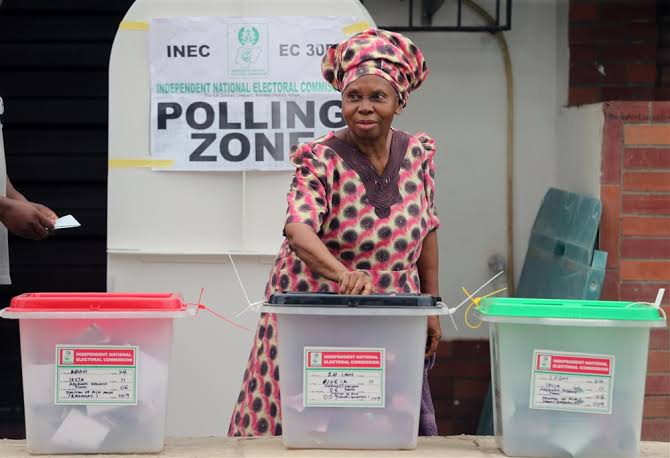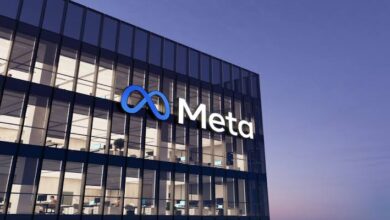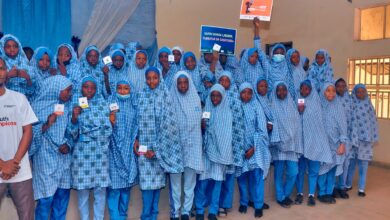ONDO: Race to Alagbaka Government House Intensifies

By Oluwaseye Ogunsanya
The race to occupy the seat of power in the Alagbaka Government House has reached its peak as the contesting political parties and their respective flag bearers are campaigning vigorously, as we look forward to the Ondo State governorship election scheduled for the 16th of November.
The election is coming on the heels of the recently held gubernatorial election in Edo State. Yiaga Africa in its Post-Election Statement identified critical issues that compromised the integrity of the election. The statement added that “while some processes, such as voting and counting, showed substantial compliance, serious irregularities in the results collation process have raised significant concerns.”
Similarly, FactCheckAfrica also identified the deliberate spread of falsehoods by the political actors and their affiliates. According to a report which reflected on the role of misinformation in the September 21 election, the political actors and their affiliates deployed an arsenal of misinformation tactics designed to undermine the integrity of the electoral process. It added that it “was not just a by-product of electoral competition but a well-coordinated strategy to manipulate public perception and disrupt the sanctity of the vote.”
The foregoing indicates that there are much work to do by the electoral umpire, the Independent National Electoral Commission (INEC) and other stakeholders as they are tasked with the responsibility of regaining and maintaining public trust in the electoral process and also consolidating on the gains made.
This takes a critical look at the leading candidates, INEC preparedness as well as the issues around the forthcoming election.
The Candidates
According to INEC, seventeen (17) political parties are fielding candidates for the election as no political party nominated a female candidate while one (1) candidate nominated by the African Democratic Congress (ADC) is a person with a disability (a paraplegic),
Some of the candidates on the list include the incumbent, Lucky Aiyedatiwa (All Progressives Congress), Olorunfemi Ayodele (Labour Party), Olugbenga Omogbemi (NNPP), a former deputy governor, Ajayi Alfred (Peoples Democratic Party), and Akingboye Benson (Social Democratic Party).


As the Ondo State polls approach, analysts have identified three major parties to watch. The ruling All Progressives Congress (APC) is represented by the incumbent governor, Lucky Ayedatiwa, a businessman and key figure in the political dynasty of the late Governor Oluwarotimi Akeredolu.
Ayedatiwa who took over the reins of power last December following the death of his boss, Rotimi Akeredolu has promised to fulfil his campaign promises if elected as the governor of the State. He also added that the 2025 budget of his administration will be meticulously structured to capture the developmental needs of every part of the state. Through his “Our EASE” agenda, Aiyedatiwa captures his goals and aspirations for Ondo State which includes Security and Rule of Law, Urban and Rural Development Through Agriculture and the Blue Economy, Revolutionary Technological Advancement & Industrialization, Efficient Healthcare and Socio-economic Welfare, Adequate Power and Affordable Energy, Sustainable Infrastructural Development and Tourism as well as Education, Human Capital Development, and Entrepreneurship.
Ayedatiwa however faces a challenge from Agboola Ajayi of the People’s Democratic Party (PDP), a former deputy governor to Akeredolu, lawyer, and businessman, who remains committed to his campaign despite the crisis bedevilling his party and the recent defections of supporters from the PDP to the APC. He had claimed that he will win the governorship election “convincingly” adding that residents of the state have been grappling with poverty under the All Progressives Congress (APC) which has displayed a “lack of foresight and defined policy for good governance”.
Ajayi campaign plans hinges on the following areas including, Security (enhancing law enforcement capabilities and community policing initiatives), Agriculture (promoting self-sufficiency and providing support for modern farming techniques), Education (ensuring quality education through infrastructure improvements and funding, Health (addressing deficiencies in healthcare by establishing primary health centers and improving access to essential services, Infrastructure (focusing on road rehabilitation, electrification, and water supply. His running mate is Hon. Festus Akingbaso, currently the only PDP representative from Ondo in the House of Representatives.
The third contender is the Zenith Labour Party (ZLP), led by Dr. Abbas Mimiko, practising American professional psychiatrist for no fewer than 35 years, an Islamic cleric, widely travelled agriculturist and brother of former Ondo Governor Olusegun Mimiko. Abbas is grounded in his experience in public service, political background, oratorical skills and healthcare reform that was brought to bear by the administration of his brother. He is rallying supporters and mobilising against the unconstitutional zoning arrangement with his Seven Keys for Liberation which are Karije (food security for everybody), Karimu (portable water for every citizen), Karina (massive industrialisation, wealth creation, entrepreneurship) Karika (educational opportunity for every citizen), Kanile – Lona (a clear and well-articulated plan to put 20,000 new homes in Ondo State based on a mortgage system) Kanilera (health project) and Kalalafia (peace and security for our citizenry).
INEC’s Readiness
The electoral umpire is leaving no stone unturned in preparation for the governorship election as it is intensifying engagement with stakeholders at both the state and local government levels, with voter education ongoing on all fronts.
As part of the commission’s efforts to promote electoral integrity and prevent the spread of false information, media professionals were tasked by the electoral umpire to verify information before publication, debunk misinformation promptly and educate the public on the electoral process. This plea was made at a two day interactive workshop for staff of broadcast media organised by the commission with the support of the European Union (EU), International Press Centre (IPC) and the Centre for Media and Society (CEMESO).
The commission also reported that as of last Tuesday which marked the ending of the Five days PVC collection exercise that took place in all 203 wards across the state, 55,859 Permanent Voter Cards have been collected, representing 62.2 percent of the 89,777 available cards. According to the National Commissioner and Chairman of the Information and Voter Education Committee, Sam Olumekun, the figure was the highest percentage of PVCs collected in such a short period since the Continuous Voter Registration process was introduced in 2015.
Similarly, INEC has also announced plans to conduct a mock accreditation of voters on Wednesday, November 6, 2024. The mock accreditation will test the deployment of the Bimodal Voter Accreditation System and the real-time result upload to the INEC Result Viewing portal.
On the flip side however, there have been calls from different quarters on the commission to redeploy the Ondo State Resident Electoral Commission (REC), Mrs. Toyin Babalola.
The calls for the REC’s deployment, who was born and educated in Akure, were pinned to her alleged conflict of interest and alleged ties with the All Progressives Congress (APC). The Ondo State Vanguard had expressed a lack of confidence in the REC’s ability to conduct a free and fair election in a petition dated September 27 and addressed to Mahmood Yakubu, INEC chairman.
They alleged that she has shown support for the APC and its candidate through recent actions, including unilaterally validating the APC primary election report. This call was also re-echoed on October 16 by Seyi Makinde, governor of Oyo and it has led to a massive protest. Having initially denied the allegations made against the REC, INEC said it would meet on the request, consider it and take a decision.
Closing Words
Elections in Nigeria are usually plagued by allegations of bias, inefficiency, and corruption with issues such as voter suppression, ballot box snatching, and collusion with political actors coming up time and again. The off-cycle governorship election in Ondo State offers a fresh opportunity for the electoral umpire to conduct a free, fair, and credible election while the political actors and other major stakeholders have the responsibility of conducting themselves in an orderly manner. Doing these will definitely restore the eroded public confidence in the country’s electoral process.




